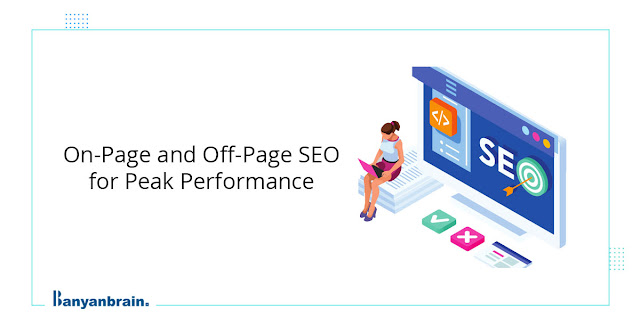What do you mean by on-page SEO?
On-page SEO, or on-site SEO, is a branch of search engine optimisation where digital marketers optimise all website pages individually to improve their search engine rankings and increase organic traffic. A website can be optimised using various strategies and techniques directly on a webpage to make it more user-friendly. On-page search engine optimisation aims to make the content and web page structure more relevant, navigable, accessible, and high-quality so that they can be easily located by both search engines and human visitors. While working with SEO, on-page SEO is a crucial focus of any comprehensive SEO strategy. It helps achieve higher search engine rankings by optimising every webpage and attracting organic traffic to the business website. On-page SEO works with off-page SEO and technical SEO to form a well-rounded SEO strategy.
A few examples of optimising on-page SEO are adding quality content, relevant keywords, internal linking, images, videos, audio, alt texts, etc.
What is off-page SEO, for example?
Off-page SEO, or off-site SEO, is another branch of search engine optimisation where digital marketers use various strategies and activities not performed on the website but planned outside the business website to improve its search engine rankings and online visibility. The main focus of off-page SEO is to build a positive online reputation to increase the website authority and generate backlinks from other reputable websites. All off-page activities help search engines build the credibility and trustworthiness of the business site. It is necessary to have a robust online presence, which can be established by earning credible and high-quality backlinks from authoritative sources. These backlinks are located by the search engines and significantly impact your website's search engine rankings.
Optimise your website through off-page activities, including improving backlinks and collaborating with other forms of marketing, such as social media marketing and running ad campaigns.
Both on-page and off-page SEO contribute towards driving traffic to the website. Let us check how.
How do you boost website traffic using On-Page SEO?
Search engine optimisation is a slow and ongoing process and requires regular monitoring and optimisation of the on-page elements for long-term success. A few on-page factors for optimisation are-
Keyword optimisation- Businesses must conduct thorough keyword research to look for relevant terms and phrases related to the business that the target audience is most likely to search. After that, the filtered keywords must be strategically incorporated into the website content. When users search for queries with similar keywords, they land on your site, increasing website traffic.
Content quality- A website must have well-structured, organised, and easy-to-read content that is unique, engaging, creative and relevant to the business industry. High-quality content helps in attracting and retaining website visitors.
Internal linking- Interlinking of other web pages helps improve the chances of user engagement and drives traffic to other web pages. It also enhances user experience by offering additional relevant information.
Website design- An essential aspect of optimising websites is to have a good website design by image optimisation, minimising unnecessary scripts, compressing files, and leveraging browser caching to improve website loading speed. Poor loading speed increases the bounce rate of websites.
URL structure, title tags and meta description- All website elements must contain relevant keywords. The meta description and title tags must be descriptive and clear to drive users to click on them. The URL must be user-friendly and accurately represent the webpage content.
How does Off-Page SEO impact website traffic?
High-quality backlinks- Backlinks are essential in off-page SEO and serve as "votes of confidence" for the website. Businesses can improve their search engine rankings by creating valuable and shareable content that naturally attracts backlinks. Guest posting on reputable websites of relevant industries is an effective way of earning backlinks.
Local SEO- Optimizing the website for local SEO has become essential to rank the website for local searches such as "cafes near me". Accurate business listings, citations, and reviews on various review sites help enhance local SEO for websites.
SMM- Social media marketing creates and shares content related to the industry to direct viewers from social media platforms to the business website.
ORM- Online reputation management involves encouraging satisfied customers to leave positive reviews online. It enhances the online reputation of businesses and offers credibility to attract local and organic traffic.
These are a few ways to effectively use on-page and off-page SEO to improve website traffic by increasing search engine rankings.
Banyanbrain is a stellar digital marketing agency in Gurgaon that specialises in offering digital marketing services such as on-page and off-page SEO.

Comments
Post a Comment